Not Just a Game: Sports Movies That Tackle Social Issues
13 December 2024
Sports movies are more than just a couple of hours of intense competition, thrilling comebacks, or underdog victories. Sure, we all love a good sports flick for the adrenaline rush and those goosebump-inducing moments. But, some films go way beyond the field, court, or rink. They dive deep into societal issues, using sports as a backdrop to tell stories that are powerful, thought-provoking, and relevant.
These movies aren't just about winning or losing; they're about the human condition. They take on issues like race, inequality, gender, and even political oppression. They push boundaries, ask tough questions, and make us think about the world beyond the scoreboard.
So, let's grab some popcorn and dig into some of the most compelling sports movies that tackle major social issues. These films remind us that sports aren't just about the game—they're about life.
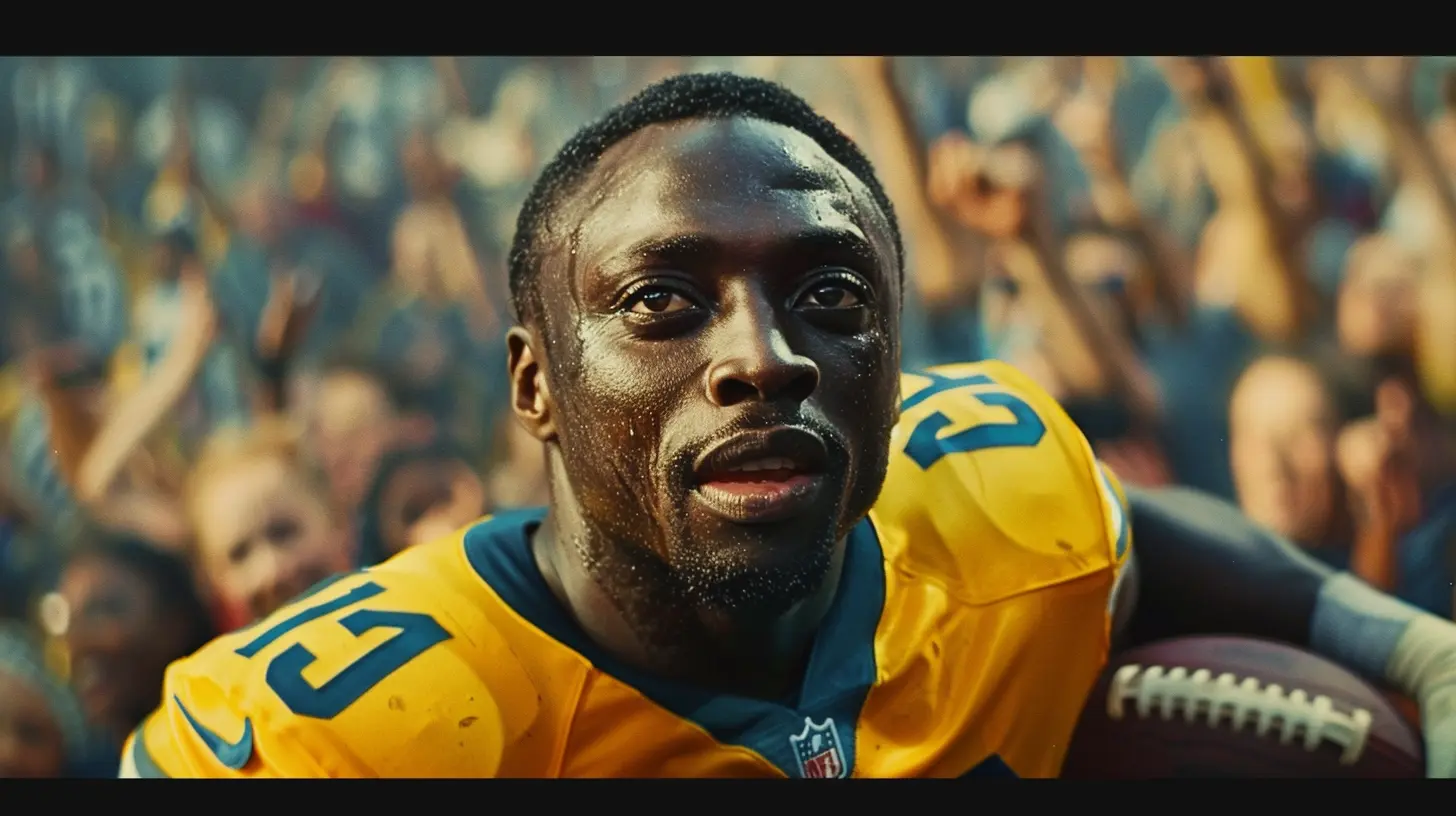
1. Remember the Titans (2000)
If there's one sports movie that perfectly illustrates racial tension and unity, it's Remember the Titans. Based on a true story, this film is set in the early 1970s when schools in Alexandria, Virginia, were being desegregated. The story revolves around the high school football team, which was forced to integrate black and white players under the guidance of their new African American coach, Herman Boone (played by Denzel Washington).At its core, Remember the Titans isn't just about football. It’s about breaking down racial barriers, confronting prejudice head-on, and showing that teamwork and unity can bridge even the deepest divides. The film makes you rethink the role of sports in challenging societal norms and fostering change.
And let's be honest, if you didn’t get chills during the locker room speeches or the final game scene, you might need to check your pulse.
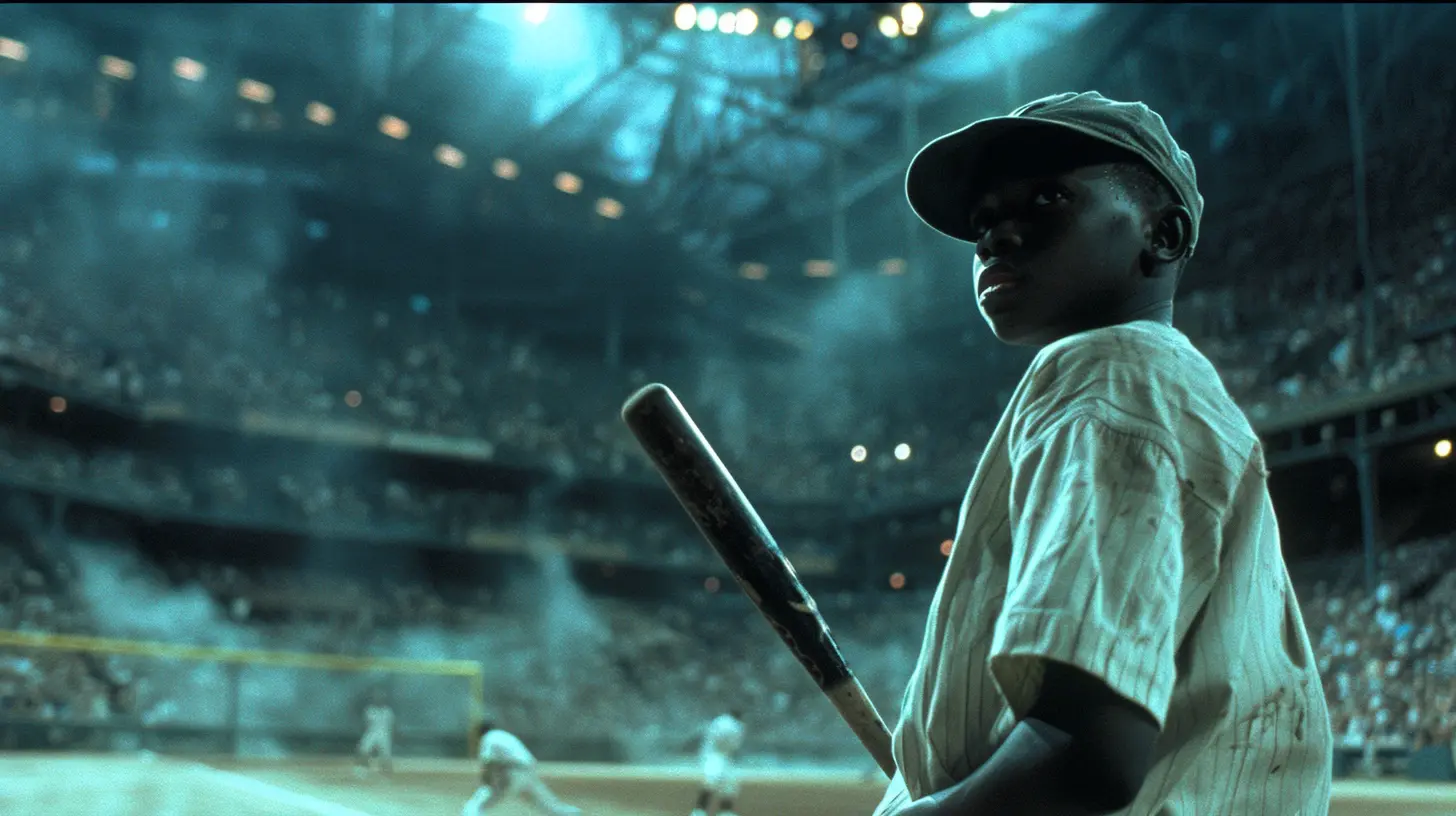
2. 42 (2013)
When we talk about sports and social change, Jackie Robinson’s name is bound to come up. 42 tells the story of Robinson, the first African American player to break Major League Baseball's color barrier in 1947. Played by the late Chadwick Boseman, the film doesn’t shy away from the ugly realities of racism during that period.Robinson faced relentless abuse, both from fans and fellow players, but he persevered, opening doors for countless others. 42 isn’t just a tribute to Robinson's talent on the field; it's a powerful reminder of the courage it takes to stand up against systemic racism.
The film highlights that sports can be a platform for social change, even when the odds seem insurmountable. Robinson’s journey wasn’t just about baseball—it was about changing the very fabric of American society.
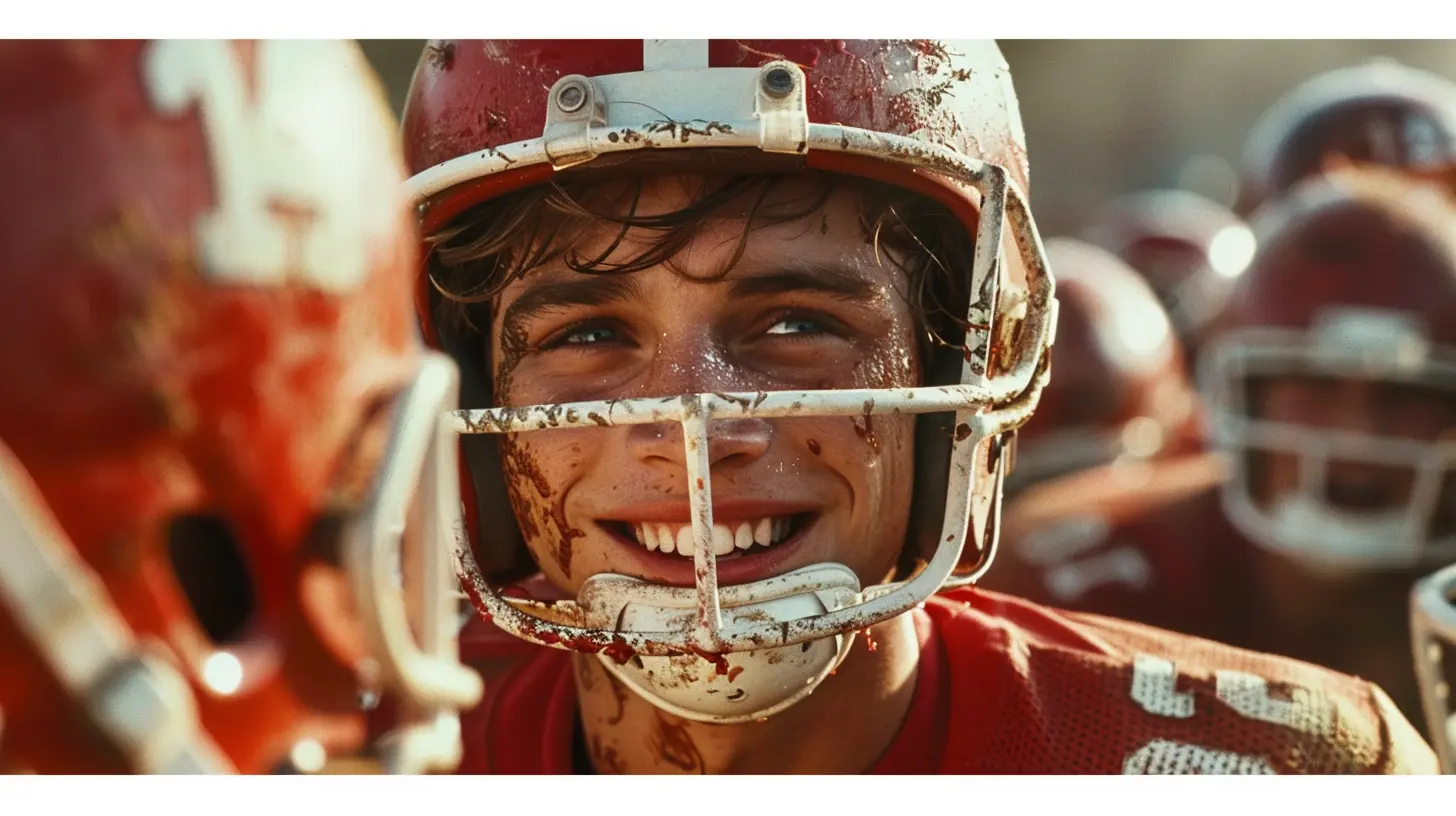
3. Invictus (2009)
Invictus is a perfect example of how sports can help heal a nation. Set in post-apartheid South Africa, the film focuses on Nelson Mandela’s efforts to unite the country through rugby. After being released from prison and elected president, Mandela (played by Morgan Freeman) faces the challenge of bringing together a deeply divided nation still reeling from the racial tensions of apartheid.Enter rugby, a sport mostly associated with the white Afrikaner population. Mandela teams up with the captain of the national rugby team, Francois Pienaar (played by Matt Damon), to rally the country behind their team during the 1995 Rugby World Cup.
At its core, Invictus shows that sports can transcend politics, culture, and history. Mandela understood that sports had the power to bring people together in ways that speeches and policies couldn't. And in the most unlikely of ways—through rugby—South Africa started to heal.
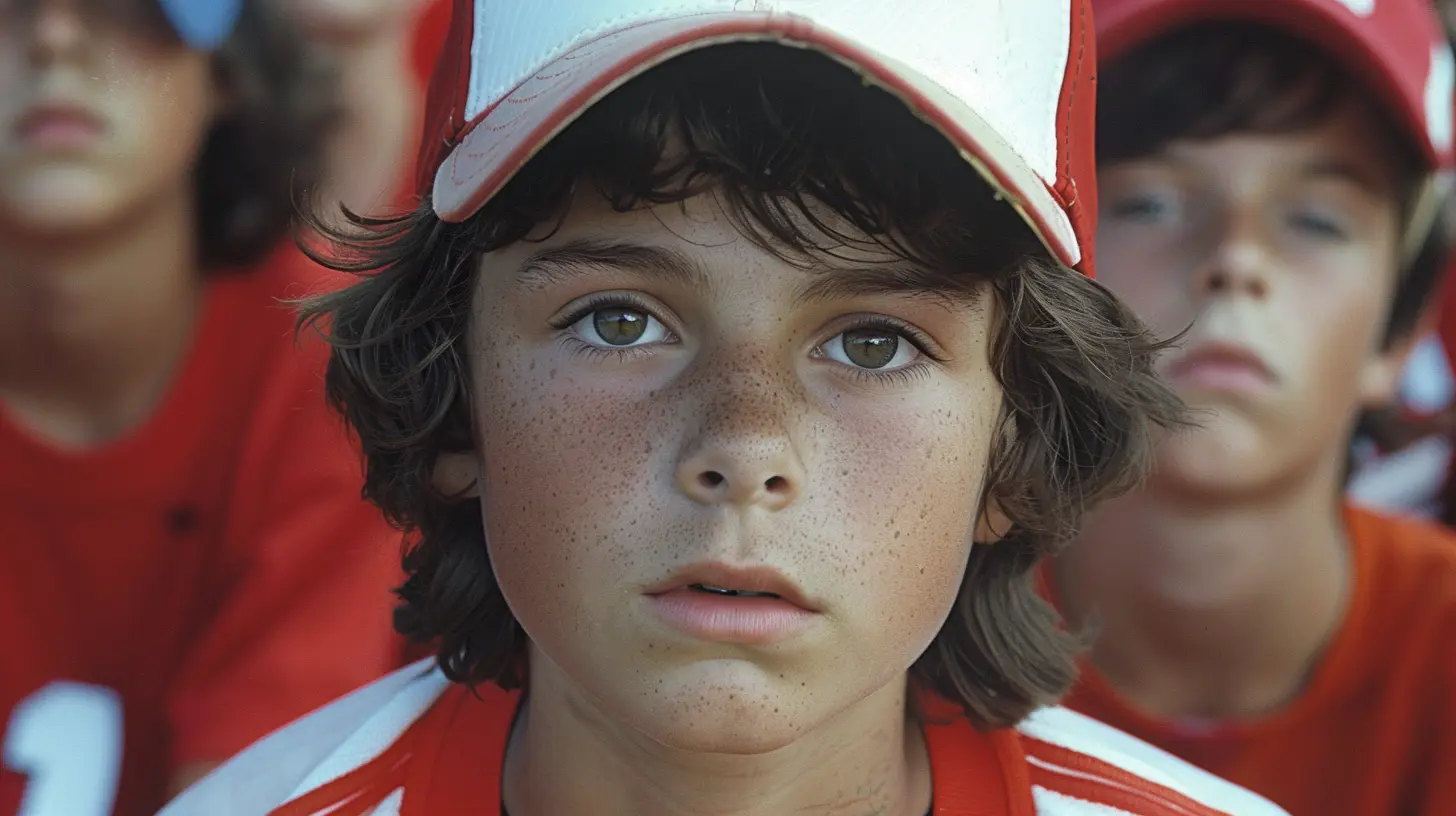
4. The Blind Side (2009)
The Blind Side is another sports film that goes beyond the game to explore themes of race, class, and privilege. Based on the true story of Michael Oher, an African American teenager from a broken home, the film follows his journey as he’s taken in by a wealthy white family who helps him succeed both academically and athletically.While football plays a central role in the film, the real story is about the transformative power of empathy and kindness. The Tuohy family doesn’t just give Michael a place to stay; they give him a shot at a better life. In return, Michael teaches them valuable lessons about resilience and understanding.
The Blind Side raises important questions about privilege, charity, and the complexities of race relations in America. It’s a feel-good movie, but it’s also a reminder of the systemic barriers that still exist for many young people like Michael.
5. He Got Game (1998)
Spike Lee’s He Got Game is more than just a basketball movie; it's a raw, unfiltered look at the intersection of sports, family, and societal expectations. The film stars Ray Allen as Jesus Shuttlesworth, a highly sought-after high school basketball player navigating the pressures of recruiting, family drama, and his future.Denzel Washington plays Jesus’ estranged father, who is temporarily released from prison to convince his son to sign with a particular college. The film delves into the exploitation of young athletes, the commodification of talent, and the weight that young black men often carry as they try to escape the cycle of poverty.
He Got Game doesn’t sugarcoat the challenges that come with being a young, gifted athlete. It highlights the complex dynamics between family, the business of sports, and the American Dream. It’s a stark reminder that, for many, sports aren’t just a game—they’re a way out, but not without a cost.
6. Million Dollar Baby (2004)
At first glance, Million Dollar Baby seems like a typical boxing movie. But as the story unfolds, it becomes clear that this film is about much more than just sports. Directed by Clint Eastwood, the movie follows Maggie Fitzgerald (played by Hilary Swank), an underdog boxer who rises through the ranks with the help of a grizzled trainer, Frankie Dunn (Eastwood).However, the film takes a dramatic turn when Maggie suffers a life-altering injury. What follows is a deeply emotional exploration of disability, autonomy, and the right to die. Million Dollar Baby raises tough ethical questions and challenges societal norms regarding disability and euthanasia.
While boxing is the catalyst, the film’s true strength lies in its poignant commentary on the human spirit, determination, and the difficult choices we face in life.
7. A League of Their Own (1992)
Who says sports movies are just for the guys? A League of Their Own tells the story of the All-American Girls Professional Baseball League, which was formed during World War II when many male athletes were off fighting in the war.The film highlights the struggles these women faced—not just on the field but in breaking down gender stereotypes. They were expected to play baseball while still being "ladylike," and many people didn’t take their league seriously.
The movie brings attention to the broader issue of gender inequality in sports, while also serving up some classic one-liners like, “There’s no crying in baseball!” But underneath its humorous and heartwarming surface, A League of Their Own is a reminder that women have been fighting for equality in sports for decades.
8. The Express (2008)
The Express is the inspiring true story of Ernie Davis, the first African American to win the Heisman Trophy. Set in the racially charged 1950s and 60s, the film follows Davis’ journey as a standout football player at Syracuse University.Like 42, The Express doesn't shy away from depicting the racism Davis faced both on and off the field. But more than that, the film highlights the pressure he was under to represent his race in a time of intense social upheaval.
Davis’ story is one of perseverance, talent, and breaking barriers, but it’s also tinged with tragedy, as he died of leukemia before ever playing a professional game. His legacy, however, lives on as a poignant reminder of what it means to break through boundaries in a world not yet ready to accept you.
9. Ali (2001)
When you think of athletes who’ve used their platform to speak out on social issues, Muhammad Ali is at the top of the list. Ali, starring Will Smith, is a biographical film that delves into the life of the legendary boxer, focusing on his rise to fame, his conversion to Islam, and his strong opposition to the Vietnam War.Ali wasn’t just a boxer; he was a social activist who wasn’t afraid to speak his mind, even when it cost him his career. The film explores themes of race, religion, and political activism, showing that Ali’s fights weren’t just in the ring—they were against societal norms and injustice.
Ali is more than a sports movie; it's a portrait of a man who used his fame to challenge the status quo and fight for what he believed in.
Conclusion
Sports movies have a way of resonating with us on a deeper level. Sure, we come for the action, the competition, and the thrill of victory. But the best sports movies are the ones that make us think, that challenge our perspectives, and that reflect the complex world we live in.From racial tensions and gender inequality to political activism and disability rights, sports films have tackled some of the most pressing social issues of our time. They remind us that, in many ways, sports aren’t just a game—they’re a reflection of our society and the struggles we face.
So, the next time you sit down to watch a sports movie, look beyond the scoreboard. You might just see something more profound.
all images in this post were generated using AI tools
Category:
Sports MoviesAuthor:

Everett Davis
Discussion
rate this article
17 comments
Fletcher Fry
This article highlights the powerful intersection of sports and social issues in films. It’s refreshing to see how these stories go beyond just the game, bringing attention to important topics like race, equality, and resilience. Sports movies can be a catalyst for change and inspire meaningful conversations. Great read!
April 6, 2025 at 8:41 PM

Everett Davis
Thank you for your insightful comment! I'm glad you found the article impactful and appreciated how sports movies can inspire important conversations.
Selina Wolf
Finally, a real MVP list! Sports movies that score points for social awareness—because tackling tough issues is just as crucial as tackling on the field!
February 15, 2025 at 5:27 AM

Everett Davis
Thank you! I'm glad you enjoyed the list and recognize the importance of sports films addressing social issues. They truly highlight the power of storytelling in both sport and society!
Chloe Barlow
Transformative stories that inspire change.
February 3, 2025 at 1:45 PM

Everett Davis
Thank you! I'm glad you found the stories inspiring. They truly highlight the power of sports in driving social change.
Layne Lynch
These films brilliantly blend sports with powerful social themes, inspiring change and reflection.
January 29, 2025 at 5:48 AM

Everett Davis
Thank you! I'm glad you resonate with the powerful messages in these films—they truly highlight the impact of sports on society.
Rachel McLemore
This article insightfully highlights how sports films can spark important conversations about social issues. It’s refreshing to see creativity in storytelling that prompts reflection and promotes change in society.
January 23, 2025 at 4:48 AM

Everett Davis
Thank you for your thoughtful comment! I'm glad you found the article insightful and agree on the power of sports films to inspire meaningful dialogue about social issues.
Josie Morales
Sports films transcend entertainment, serving as powerful mirrors to society. They challenge us to confront uncomfortable truths, illustrating how the arena of competition can illuminate issues of identity, inequality, and resilience.
January 20, 2025 at 12:21 PM

Everett Davis
Absolutely! Sports films go beyond mere entertainment, revealing societal truths and encouraging discussions on identity, inequality, and resilience through the lens of competition.
Phoenix Lewis
Who knew sports films could tackle social issues? I just thought they were all about crying in the locker room and chasing nachos at halftime!
January 14, 2025 at 11:36 AM

Everett Davis
Absolutely! Sports films often go beyond the game, exploring powerful themes like race, identity, and perseverance, making them relevant and impactful.
Maren McGovern
This article insightfully highlights how sports movies effectively address social issues, blending entertainment with important messages. They serve as a powerful medium for sparking conversations and promoting change beyond the field.
January 10, 2025 at 5:31 AM

Everett Davis
Thank you for your thoughtful comment! I’m glad you found the article highlights how sports movies can inspire important conversations and drive change.
Felicity Jordan
Sports movies are powerful storytellers, using the arena to confront social issues head-on. They not only entertain but also spark crucial conversations about race, inequality, and courage. These films remind us that the impact of sports extends far beyond the field, resonating with real-world challenges.
December 31, 2024 at 1:15 PM

Everett Davis
Absolutely! Sports movies not only entertain but also serve as a platform for important discussions about social issues, highlighting the profound impact sports can have on society.
Marlowe Kim
Sports movies often transcend entertainment, shining a light on social issues that resonate deeply. They remind us that the power of storytelling can inspire change, foster empathy, and unite communities. Through the lens of sport, these films evoke both reflection and action.
December 26, 2024 at 5:27 AM

Everett Davis
Absolutely! Sports movies serve as a powerful medium for exploring social issues, fostering empathy, and inspiring change while uniting communities through compelling storytelling.
Mika Torres
This article beautifully highlights how sports movies transcend entertainment, serving as powerful platforms for social commentary. It’s fascinating to see how filmmakers use the backdrop of athletics to address critical issues like inequality and identity. I’m eager to discover more films that inspire change while celebrating the spirit of competition!
December 20, 2024 at 5:03 AM

Everett Davis
Thank you for your insightful comment! I'm glad you found the article meaningful. There are indeed many sports films that inspire change—I'd love to hear your favorites!
Zevon McCoy
Cinema scores, hearts soar!
December 18, 2024 at 5:41 AM

Everett Davis
Absolutely! Sports films often transcend the game, showcasing powerful narratives that resonate with real-world issues.
Vance McNeal
Love how sports movies spark change!
December 17, 2024 at 1:36 PM

Everett Davis
Thank you! Sports movies have a powerful way of highlighting social issues and inspiring change. I'm glad you enjoyed the article!
Hawk McWhorter
Who knew touchdowns could tackle inequality? These films serve up grit with a side of social justice!
December 16, 2024 at 1:49 PM

Everett Davis
Thank you! I'm glad you appreciated the blend of sports and social justice in these films. They really highlight the power of storytelling to spark change.
Martha Forbes
This article beautifully highlights how sports movies go beyond entertainment, sparking important conversations about social issues. It’s inspiring to see filmmakers use the platform of sports to tackle such critical themes. Thank you for shedding light on these powerful stories that resonate far beyond the field!
December 15, 2024 at 11:43 AM

Everett Davis
Thank you for your insightful comment! I'm glad you found the article meaningful and agree on the powerful role sports movies play in addressing important social issues.
Nymira Bell
In frames of struggle, heroes rise, Beyond the field, where truth defies. These cinematic tales ignite the flame, For sport transcends — it’s never just a game. Voices echo, change takes aim.
December 14, 2024 at 9:18 PM

Everett Davis
Thank you for capturing the powerful essence of sports films! They truly illustrate how the struggle for justice can transform the game into a catalyst for social change.
Talia Lewis
What a fantastic read! It's inspiring to see how sports movies go beyond the field, tackling important social issues with heart and humor. They remind us that every game is a chance to spark change. Let’s cheer for both the athletes and the stories that unite us! 🎉🏆
December 14, 2024 at 12:36 PM

Everett Davis
Thank you! I'm glad you found it inspiring. Sports movies truly can bridge the gap between entertainment and important social messages!
MORE POSTS

The Rivalry Continues: Previewing the Grudge Match
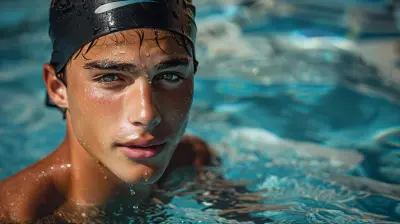
Why Core Strength is Crucial for Swimmers

HIIT vs. LISS: Which Cardio Style Suits You Best?

Weathering the Storm: How Team B Plans to Overcome Adversity

How to Ski in Low Visibility: Tactics for Foggy or Snowy Days

From the Stands to the Screen: Engaging Fans in a Digital-First World

How to Master the Perfect First Touch in Soccer

Exploring the Rise of MMA Gyms Around the World

Sports Documentaries That Are Better Than Fictional Films
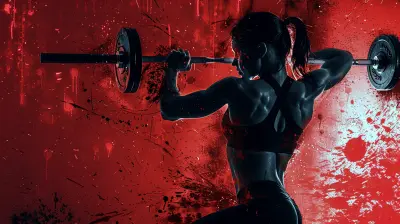
How to Build Upper Body Strength Without a Gym

The Value of Tradition in College Sports Rivalries